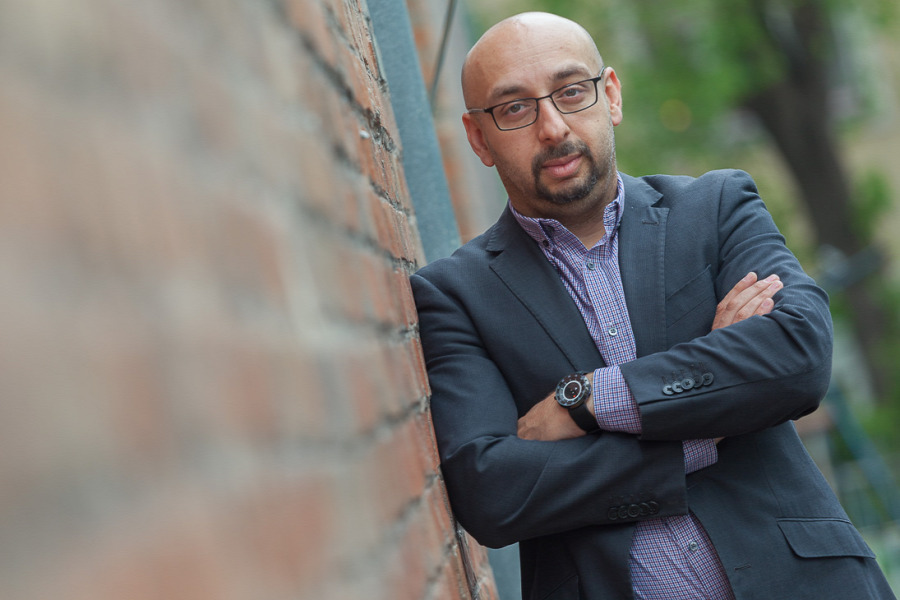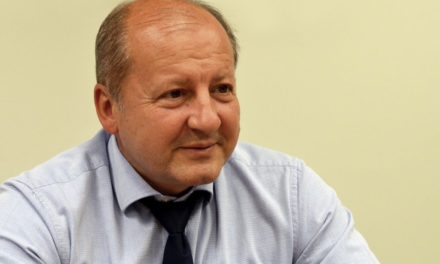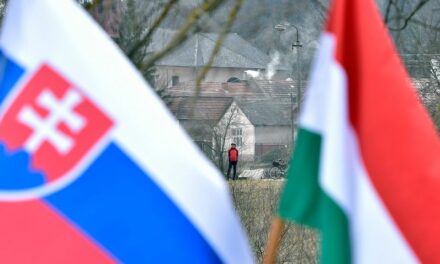We talked with István Forgács, an expert on Roma issues and a father of three children, about the perception of domestic violence in Roma and non-Roma communities, the relationship of gypsies to war, and the benefits of foresight. Interview by Szilvia Polgári.
You recently wrote a shocking article I am the voice of gypsy women . It was about domestic violence, a problem that is also present among the gypsies, perhaps even overrepresented. But it seems that so many people don't want to talk about it, and so many people wish you didn't either, that it's time to broach the subject in an interview.
This is a sad – and unfortunately the second – realization of this. In fact, it seems that it is so necessary to keep quiet about it that there was also a very close acquaintance of mine who worked with me for years, who thinks that I am not sure that I am the most authentic as the voice of Gypsy women. If they want to speak, he said, they will speak, but I should not speak on their behalf.
Why is that?
Because according to him, this is also a kind of abuse if I do it unsolicited. I was disturbingly disappointed that people who really know me, even they bow to ideologies, and in fact, in a kind of sexist approach, suggest that I - the man - cannot speak on behalf of women, gypsy women.
Why did you write the article?
I've been interested in this topic for years, I'd really like to see a change in this, but one of my biggest problems is that it's hard to find real allies. In my own gypsy community, if I want to overcome male dominance and ask that gypsy men stand by me on the issue, then many people think that I am motivated by self-hatred.
They accuse that "István Forgács comes here and condemns and scolds the Gypsies, just to meet the expectations of the majority society. Because he found a topic to hurt them again."
But I'm not blaming the gypsies. I want to take action against violent men, among whom there are a significant number of Gypsy men.
Do your critics think that domestic violence is not present at all in mainstream society?
Of course there isn't, it's just an incredible double standard. If anyone today says that Gypsy men are perpetrators of domestic violence at least to the same extent as non-Gypsy men, and even to a greater extent in some economically and socially disconnected and undersocialized areas, I think that they are telling the truth. Who. And according to the classical rights defenders' view, which also acts in the interests of minorities and vulnerable groups, including the Gypsy communities, the alarm must be sounded, because someone is once again using sentences that trample on the dignity of the Gypsies and discredit them in the eyes of the majority society. And this activity is suitable for strengthening stereotypes and hatred of Gypsies, since it talks about Gypsies beating their wives.
Do the rights defenders insist on the victim status of Gypsies until the last blood?
They are the ones who say that women are also hurt in mainstream society.
So the point is to spread the issue over the entire society, and if we do talk about it, we should only do so while blaming society as a whole.
Or at least let's relativize the problem, so the counterargument to my approaches is that, for example, the alkaline doctor wasn't even a gypsy. So I shouldn't talk about what happened to the girl from Kemecse, and I shouldn't talk about why the organization of prostitution and the atrocities against women within the family and community are mostly related to the Gypsies. I have many such stories, but they say that we should never associate these cases with gypsies as an ethnic characteristic, but deal with the issue of domestic violence in general.
So that it is not ethnically specific.
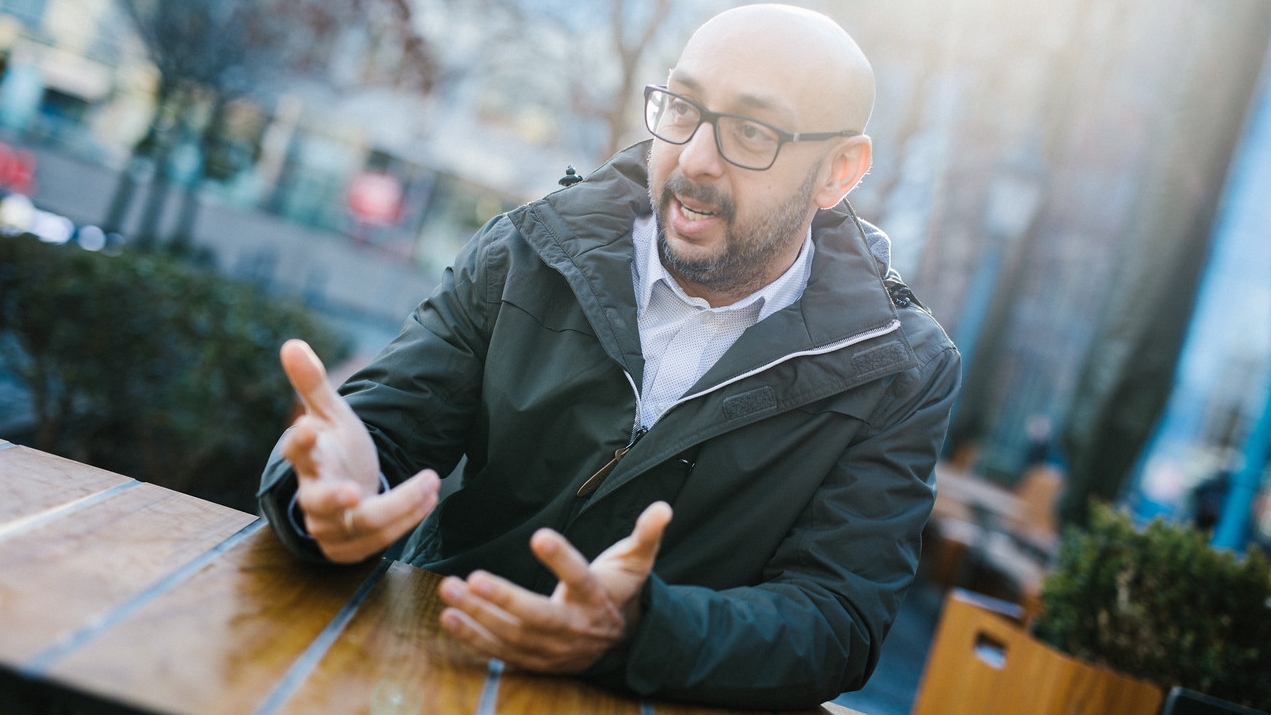
Photo: Árpád Földházi
Are there statistics that prove that domestic violence is overrepresented among the Roma population?
This is a difficult question. I note that I also don't want to list who is a gypsy and who is not. However, there are some objective indexes that paint a clear picture. By the way, the statistics are very lacking, obviously they would whip up the mood even more, but at the same time they would also pour clean water into the glass. Perhaps that is why so many people are afraid of seeing real data, surnames, faces, and social background.
But if I were to ask about the educational level of the perpetrators and victims in cases of domestic violence in Borsod-Abaúj-Zemplé or Szabolcs-Szatmár counties, I would probably get a lower average than the national average.
I did not say that gypsies beat women in their families more often, but it would highlight something. But let's go further: if we were to look at which counties and even which districts have had a remarkable amount of domestic violence in the last five years, what would the result be? Would those districts that are socially and economically in a more difficult situation and have a higher proportion of Gypsies be overrepresented compared to the national average?
Presumably yes.
Okay. Was I gypsy?
No. I think not. But others will say that indirectly it does.
That's the point. It is not the fact that matters, but its questionability and weakening. At the same time, if I want to move towards a solution, then in this case I don't want to see the Gypsies at all costs, but I try to determine on a geographical basis which are the places in the country today where there is a greater need for intervention, prevention and victim assistance. If these are areas inhabited primarily by Gypsies, then everyone has a responsibility to the people living there, including the larger number of Gypsies there.
Why don't advocates face reality?
I don't think that there is a lack of good intentions, but it seems that there are quite a few things that, despite being sufficiently objective, they turn it into subjective in a few moments, because it does not fit into their own ideological worldview.
However, if someone wants to help in this area and constantly draws wrong conclusions from the objective data, the question arises as to whether he has undertaken to deal with the problem, or if he only wants to manage it or actually conserve it? Because if he keeps putting the majority society on the dock, he doesn't solve the problem, but he secures his own status as a defender of rights forever.
I am making an interesting parallel, and I wonder what your reaction will be as a woman and as a non-gypsy. I wonder if I could say with Vera Mérő (lawyer, writer, initiator of the Nem tehts erle, te tehts éne movement, author of the volume Lúg, among other things - ed.) that the story of the alkaline doctor is a very clear signal for the entire Hungarian male society that should it be changed?
I read the book, I think it has a message not only for men's society, but also for the relevant bodies.
I see that Erika Renner's written story, in addition to criticizing the state, also wants to tell us in general terms that a lot needs to be done to reduce domestic violence in Hungary. Or don't you have such a reading?
Obviously there is. Let me note - although they make it a political issue - domestic violence is purely a social issue. And I'm very sorry that while one camp - including Vera Mérő - pours its ideology down its neck, the other side looks the other way.
I think it's admirable that all the women's rights organizations stood up for the victim, but they certainly did it because they wanted to make a difference. They see it as their goal, their mission, not only to prevent such extreme cases from occurring again, but also to reduce abuse of women in general. In order to do this, I would like the state, the government, the system, public thinking, and the media to change in such a way as to facilitate the suppression of this type of crime. Can this be said?
Yes.
Then there is still a kind of generalization in this, if they are working so that women can feel safer in a geographically well-defined place, i.e. Hungary, right?
Yes, that's right too.
In this case, I have to ask how different this endeavor is from when I say that I want there to be less relationship violence in Gypsy communities?
I will answer: not at all. Only the ideological approach does not allow us to say this, otherwise we would lose the victim status of a minority – in our case, the Gypsies.
Of course, they also dispute the basic thesis, that the problem is overrepresented in Gypsy communities, and they are especially not happy when you talk about it.
The data really speaks for itself, doesn't it? Even if indirectly.
Exactly.
If you like, we could finally say "math is math" along the analogy of "love is love". And the numbers don't lie.
Obviously they also know what the reality is, it just doesn't fit into their world view that you - not exclusively, but also - investigate the problem ethnically specifically. So that we do not use a general approach in the matter of domestic violence, but rather focus on the more endangered or vulnerable groups. Whether based on geography, age, education or social status, we should give more attention and more resources; and a different procedure should dominate in the future. So, specifically, I am asking - without dispute, that the II. it is a real problem in the district too, if a doctor with a degree is abusing his wife - that during Taktaköz we should give special help to women between the ages of 14 and 45 in disadvantaged and/or gypsy communities.
How would this be realized in practice?
All women's rights organizations could play a big role in this. Or the government could say that we organize support groups that constantly visit vulnerable communities and try to help, even supplementing the work of the local police. Gypsy women should be explained their basic rights, that they do not have to unconditionally meet the expectations of their own communities and the men or other women living in their own families.
Vera Mérő's book is extremely important, but it would be even more important if a hundred Vera Mérő visited the gypsy settlements and talked to girls over 14 years old about the fact that unwanted sexual intercourse can be refused. How has this been difficult to understand in the gypsy community for centuries? Oh well. This is exactly what should be changed.
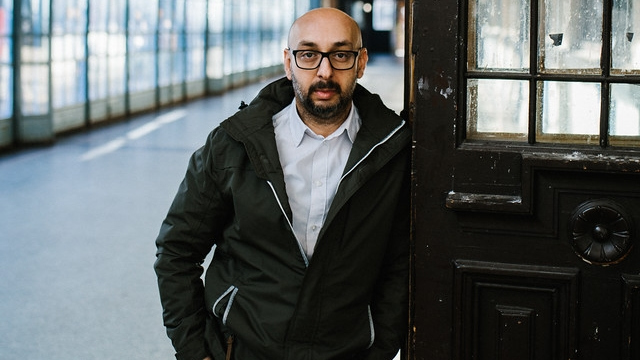
Photo: Árpád Földházi
How do the gypsies experience the fights raging next door?
All they know is that there is a war, we are finished, we will all die. In many places, they view the situation with the attitude of an alarmed little person, from the most terrifying scenarios to the point that it's all just fiction. It's going on like during Covid. Even then, there were more aware communities, and there were those that panicked in a completely irrational way or stood up to fake news. And, of course, the stupidity continued within the community as well.
Do you have personal experience with Ukrainian refugees?
Yes, last summer many Gypsy refugees, mainly Hungarian-speaking, received help from Roma organizations in Szabolcs, or from some domestic and international NGOs, who deserve all the praise for that. At the same time, I fear that the great majority of the Gypsy refugees have dissolved into the larger whole; In Budapest, for example, it is much more difficult to find them than in the countryside. So the picture is not homogeneous, and we don't have official data either.
How do they cope with inflation?
The ones I see are struggling an awful lot. I don't know what will happen when the eviction moratorium expires, but I am afraid that many difficult stories will be born. And the situation cannot be described in general, because
there are those who are more consciously preparing for the winter of 2023/24, and there are those who do not even now understand that a lot depends on them.
When the Roma leaders say that it is not certain that the next winter will be as mild and that they must prepare for it, it motivates the whole community and they may be more prepared. Elsewhere, however, they continue to play only for survival. But in more and more places they understand that it will be a difficult year, and that the characteristic is not panic, but rather a kind of natural tension: they are afraid of it, but they are also preparing for it.
That's encouraging, isn't it?
Yes, now is the opportunity to prepare for the near future better than before.
It wouldn't be bad if they tried to get the fuel in October or November, but even at the end of spring. But this requires organization, a good leader, a good mayor, a cohesive community that helps each other at local levels.
It would be possible to assess, for example, already during the spring in the individual settlements, what are the works that must be done on the residential buildings by September. Gypsy communities are perhaps more open to such things now than before. But for this they need to feel that both the local governments and the central government are trying to help them. Plannedness and foresight have been sorely lacking so far in the area of energy security, but perhaps this may change this year.
How is the community's labor market situation developing?
I haven't seen specific figures for the Gypsies from the past period, but the national statistics are good, and the Gypsies should be included in this as well. But it is certainly more difficult for certain groups, such as those with lower qualifications, to find a job now than it was a year ago. However, the situation did not deteriorate to the extent that many had previously thought.

